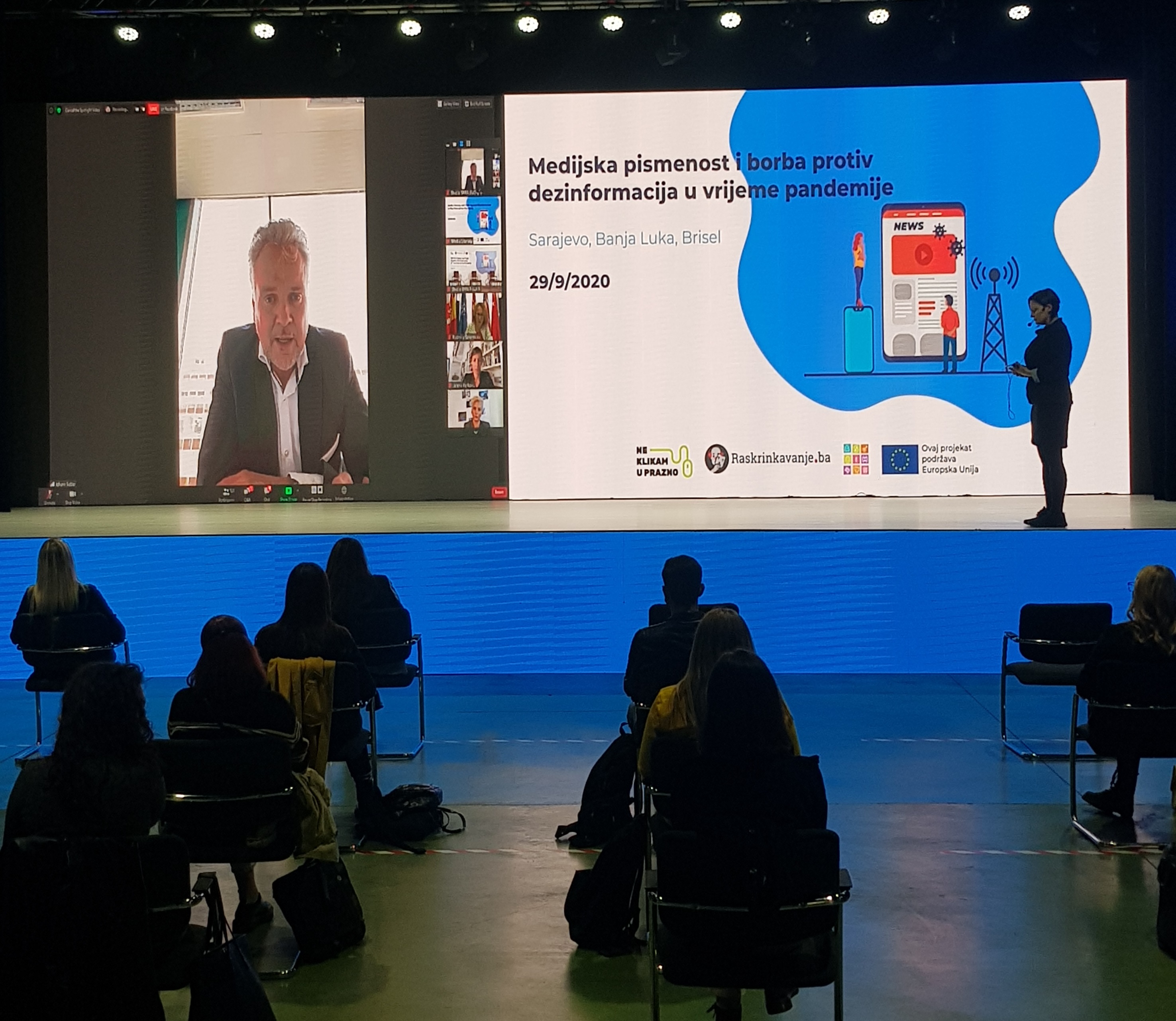The first edition of the EU – Western Balkans Media Literacy Conference, titled ‘Media Literacy and the Fight against Disinformation in the Time of Pandemic’, was held on 29 September 2020 in a hybrid format combining online as well as in-person participation in Sarajevo, Banjaluka, and Brussels.
The event was organized by the civil society organization Why Not on behalf of the SEECheck Network, in cooperation with the Association of High-school Students in Bosnia and Herzegovina, and with the support of the European Union.
The following are the main conclusions drawn from the conference discussions:
- Education must play a significant role in the fight against disinformation.
- Critical thinking can act as a “vaccine” against the infodemic that has accompanied the spread of Covid-19. Science and media literacy, information and digital literacy, as well as technical education must therefore become part of the education curriculum.
- Young people “live on their screens” but often lack the capacity to process the mass of information to which they are exposed. At the same time, young people can be reached through social media and informal education programmes.
- Adults too need to be informed about disinformation, as they are likely to be less familiar with the digital environment and may share disinformation unintentionally.
- The scientific community in Southeast Europe must be supported in standing up to pseudoscience. The damage inflicted by fringe “scientists” is pervasive and grave. The scientific community in the region does not currently feel empowered to respond to this.
- Professional and high standard media is crucial in a democracy. Journalists should be supported in order to enhance the quality of reporting, fact-checking, and investigative journalism.
- The issue of regulation needs to be addressed, also with the aim of strengthening, not curbing, free speech.
- Transparency of media and media ownership should be promoted and adequately addressed, as connections between advertisers, companies, and political structures are opaque, impacting the quality of reporting and facilitating the spread of disinformation.
- Regional fact-checking organizations highlighted the importance of networks, cross-border cooperation and accessible databases that debunk disinformation. Cooperation must be extended to include government and educational institutions as well as media and tech companies. The Third-Party Fact-Checking partnership between fact-checkers and Facebook has had some success and has recently engaged new partners in the region.
- Disinformation damages democracy, seeking to undermine trust in institutions, media and society. This has also been seen in contexts far beyond the pandemic. At the conference, examples were shared from North Macedonia where for example EU/NATO integration was challenged as a result of disinformation. During the pandemic we have also seen a surge in disinformation about the EU and the aid it has provided to the region.
- The European Parliament has established a Special Committee on foreign interference in EU democratic processes, including disinformation. The EU will continue to work closely with Western Balkans partners, and is committed to helping the region build resilience to strenghten democracy and counter disinformation.

